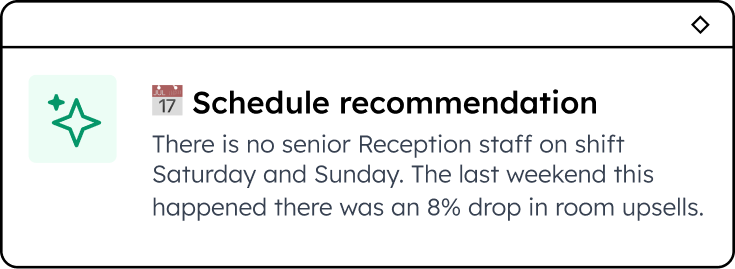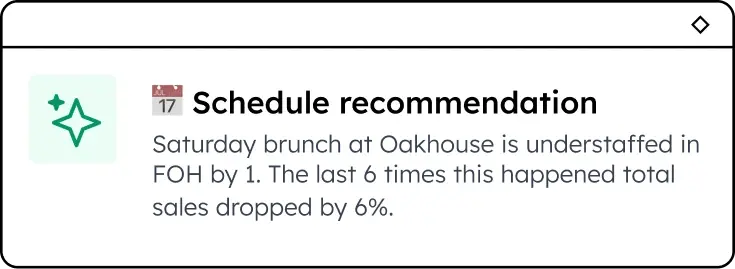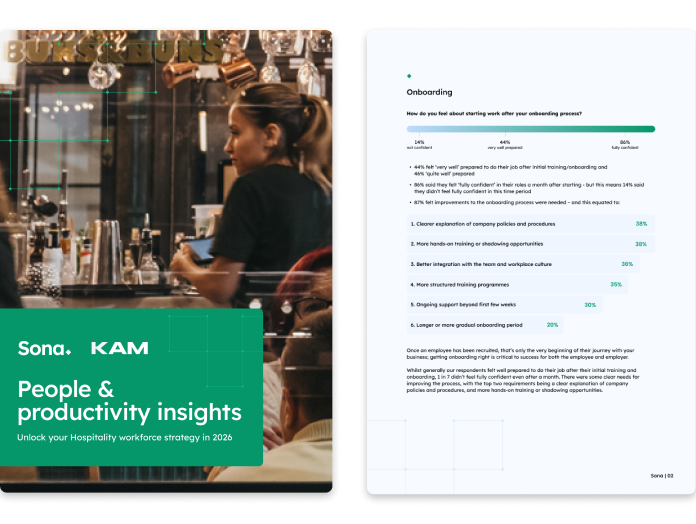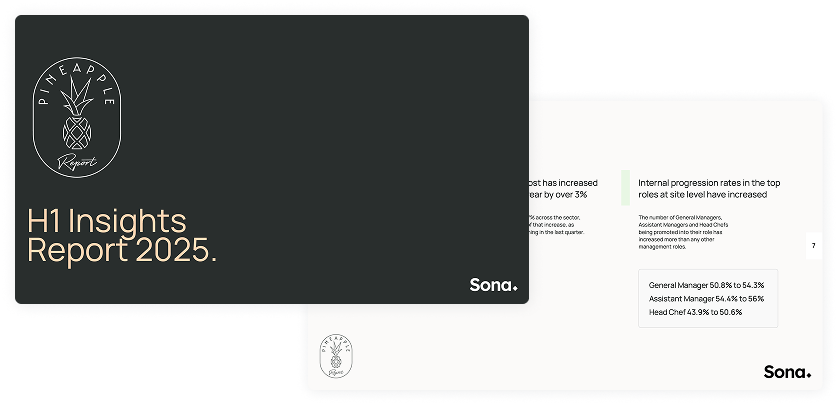Why we’re celebrating one million hours of holidays requested on Sona
Whether it’s a day at a spa, a quiet day at home, or going on that long-anticipated and well-deserved family holiday abroad, we all need some time off to rest and recharge.
5 minute read
In the hustle and bustle of our daily lives, it's easy to overlook the importance of taking a break and allowing ourselves the “luxury” of a holiday.
We started Sona because we wanted every frontline employee to feel valued and have more flexibility and control over their working life. Holiday requests are a part of that, too - flexibility isn’t limited to picking extra shifts and seeing your schedule on the app.
In the past, confirming a holiday involved finding a good time to talk to a manager, or emailing and waiting for a response. But now, frontline employees are always only six clicks away from requesting their holiday, no matter where they are.
We’ve done some digging into our data and guess what? Employees request holidays through the Sona app all the time.
Those holiday requests amounted to over 1,000,000 holiday hours - which we think calls for a celebration!
 We like to think that these hours were spent relaxing with loved ones or exploring new places - things we love doing as much as anyone.
We like to think that these hours were spent relaxing with loved ones or exploring new places - things we love doing as much as anyone.
Holidays: Both a personal and business imperative
Holiday time contributes to a healthier work-life balance, and there have been numerous studies suggesting that there is a positive relationship between this work-life balance, job performance, and employee satisfaction.
From a personal and psychological perspective, the significance of time off undeniably extends to the business realm. Well-rested employees contribute to a more productive and positive work environment.
The process of planning a holiday and requesting time off is not just a logistical task; it can be a psychological journey too. It involves reflection and a careful balance of needs. Unfortunately, in some cases it can also trigger fear or guilt associated with the impact of our absence on colleagues and the organisation as a whole.
It's important to recognise that individuals may have different approaches to taking time off. We can all think of that one colleague who is hesitant to take time off because they are always so busy.
Challenges frontline employees face when seeking time off:
There are often organisational barriers that frontline employees face when requesting holiday. Here are a select few:
Workload and staffing issues
Frontline employees, especially in sectors with high demand or tight staffing, may feel reluctant to request time off due to concerns about leaving their colleagues with increased workloads.
Lack of flexibility in scheduling
Certain industries or roles have rigid schedules that may make it challenging for employees to find suitable times for holidays. Limited flexibility in scheduling can discourage employees from requesting time off.
Financial constraints
Frontline employees may face financial constraints that make taking holidays difficult. If they are paid hourly or rely on overtime for income, taking time off could result in a financial setback.
Unlocking the power of taking time off
Successfully requesting time off can give individuals a sense of control over their lives. This feeling of empowerment is linked to psychological well-being, as it reinforces the idea that individuals have agency in shaping their experiences and taking care of their needs.
Furthermore, knowing that a holiday is planned and approved can contribute to post-holiday resilience.
There are a lot of companies offering interesting benefits encouraging employees to take time off:
- Full-time team members at Liaise get 7 weeks of holiday every year, including Bank Holidays. Their holiday entitlement increases along with the time they’re at the company.
- Verdant Leisure, a boutique holiday park operator, offers their employees with over 12 months of service a Verdant Leisure holiday each year for them and their family.
- REI, an outdoor retail cooperative with over 15,000 employees, promotes an active lifestyle and encourages employees to take "Yay Days". These are two paid days off a year for employees to enjoy outdoor activities.
Tips to encourage employees to use their holidays:
Organisations and managers can take proactive steps to foster a culture that values and supports employees in taking time off.
Increase awareness of holiday entitlements
Some employees, especially new starters, may not be fully aware of their holiday entitlements. They might not be familiar with the process to request time off. A lack of awareness can contribute to them not using the leave they’re entitled to.
Quick tips:
- Send monthly holiday balance reminders
- Provide clear and transparent holiday guidelines - an email to prompt them ahead of summer or Christmas for example
Promote taking holiday
Managers are able to lead by example when taking their own holidays. They’re able to set a positive precedent that will likely result in more employees utilising their holiday entitlement. Secondly, managers can be proactive in addressing any concerns or barriers that employees may have about taking holidays. These could be concerns about workload or potential impacts on team performance.
Lastly, it only takes a couple of minutes to ask team members how they are planning to spend their holiday and share any tips and recommendations.
Quick tips:
- Encourage managers to ask about employees’ holiday plans in their one-to-ones
- Encourage employees to share holiday highlights upon their return
Leverage digital platforms and apps
Organisations can use purpose-built digital platforms and mobile apps to highlight who hasn’t taken time off for a while. This gives them the opportunity to plan and distribute schedules more in advance. This tends to go hand-in-hand with improving overall access to work related information for frontline employees.
Without a digital system, tracking time off and taking actions based on that information is difficult. Business leaders should consider investigating the solution for their organisation that will lift the administration and time pressure from their teams and encourage better work-life balance. This will lift the load from their managers and free them up to consider other wins for the organisation.
Choosing a solution that allows employees to see their remaining leave balances and request time off with minimal effort is a real possibility. For example, with Sona, you can set automated approvals to reduce admin time or switch on smart notifications to prompt employees to take time off.
Quick tips:
- Create a dedicated section within the company's app or intranet that outlines holiday policies, accrual rates, and how to request time off
- Check your current process of requesting a leave (how long does it take, how many people need to be involved)
Technology can significantly improve the process
By leveraging technology to simplify the holiday request process, facilitating transparent communication, and providing real-time scheduling updates, employers can empower their frontline teams to take well-deserved time off with confidence.
A user-friendly solution will not only help with streamlining administrative tasks but also fosters a sense of control and empowerment among employees, allowing them to focus on their holidays rather than being held back by operational inefficiencies.
Enjoyed this article? Let's stay in touch 👋
If you liked this article, why not subscribe to our newsletter to get the latest news and views delivered straight to your inbox?



















